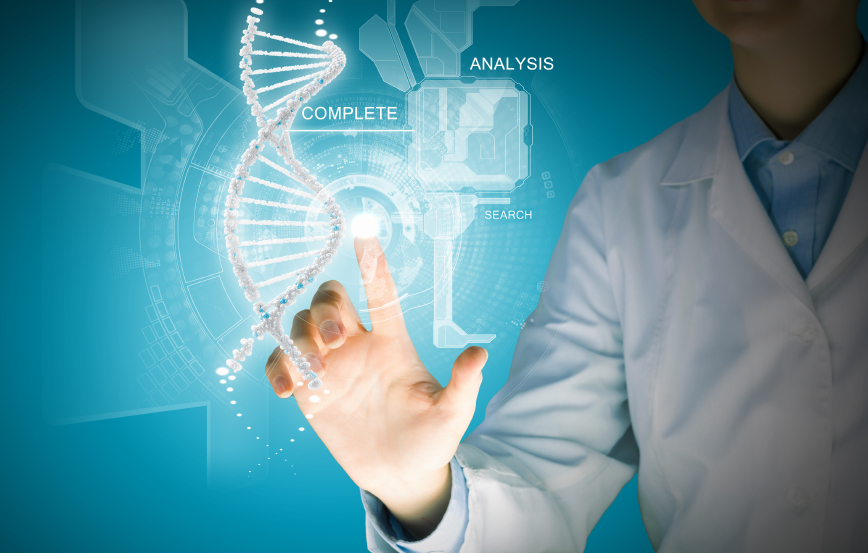CRISPR-Cas9, the new genome-modifying tool, which allows intervention prior to birth on genes responsible for causing diseases, is generating lively debate. Now we can “cross an ethical boundary hitherto deemed untouchable”, and questions are being asked if and how human embryo genomes can be modified.
“Emerging technologies have already tested the limits of what people consider to be acceptable” and “nowadays parents have unprecedented control over what they convey to their children”. Even though technical and legal safety barriers remain in place, for some scientists and ethicists, “it is important at the present time to focus on the implications of genome modification”: “What sort of world would these procedures actually create for people currently living with the disease and for future generations?”
To date, the voices of those who could be directly affected by the technique have scarcely been heard.
Ethan Weiss, a scientist/physicist at the University of California is very aware of rapid developments in genome modification techniques. His daughter is an albino with visual acuity ten times below average, and he has voiced his comments. He and his wife would have jumped at the chance of modifying Ruthie’s blindness genes before she was born if it had been at all possible. But Ruthie’s answer when asked “if she wished that her genome had been modified or if she would consider modifying the genome of any children she might have in the future in order to help them see” gave food for thought. In fact, Ruthie responded negatively to both questions. As far as Ethan Weiss is concerned, modifying his daughter’s genome “would have been a mistake since it would have taken away some of the characteristics that make Ruthie so special, e.g. her determination”.
On the contrary, for John and Charles Sabine, two brothers suffering from Huntington’s disease, “there is no legitimately feasible ethical debate about the way in which the modification should be handled any more than there is about the way in which those already affected should be treated or their children saved”.“Anyone faced with the reality of one of these conditions will not have the slightest remorse in thinking that there is no moral dilemma at all”, explained Charles Sabine.
In December 2015, in the light of numerous safety and ethical questions, a meeting organised by the American Academy of Sciences and Medicine, the Chinese Academy of Science and the Royal London Society recommended a moratorium. Nevertheless, many bioethicists and scientists supported the view that if certain gene anomalies causing fatal and debilitating conditions could be corrected in an embryo, then they should be. Like geneticist Dan MacArthur of Havard University, medicine and disability historian at the University of Illinois, Sandy Sufian, believes that CRISPR may well be used extensively for two reasons: firstly, because of the money that could be saved in caring for the disabled and secondly, because people are afraid of disability.
Many people are interested in the boundaries which should be mapped out and defenders of disability point their finger at the fact that “the list of conditions considered to be diseases and potentially eligible for medical treatment is getting longer”. “Obesity or a predisposition to alcoholism is increasingly viewed as a disease,” points out Carol Padden, a linguist at the University of California. Like her, although not opposed to the idea of genome modification, many scientists nevertheless believe that society needs to understand that it is impossible to eliminate every handicap and that human beings could lose something important in attempting to do so.
For Rosemarie Garland-Thomson, literature specialist and Co-Director of the Initiative for Handicap Studies at Emory University in Georgia, genome modification “could create a more severe social climate for everyone”: “we are putting ourselves in danger in trying to decide what lifestyles should be eradicated from the world”. Mark Leach, a Kentucky lawyer and father of an eleven year-old child with Down syndrome, denounces the judgmental role adopted by society: “The option to act upstream imposes this type of discussion: ‘You shouldn’t just do what’s right for you but what benefits society as a whole”.
Members of the rights for the disabled community have a motto, “Nothing about us without us”. As far as they are concerned, investments should be channelled into developing CRISPR alongside investments to help those already living with a disability.
According to Lennard Davis, scientist at Illinois University, science and technology must “bear in mind that the assumption as to what life is like for those who are different is based on prejudice against disability”.
Nature (23/02/2016)

